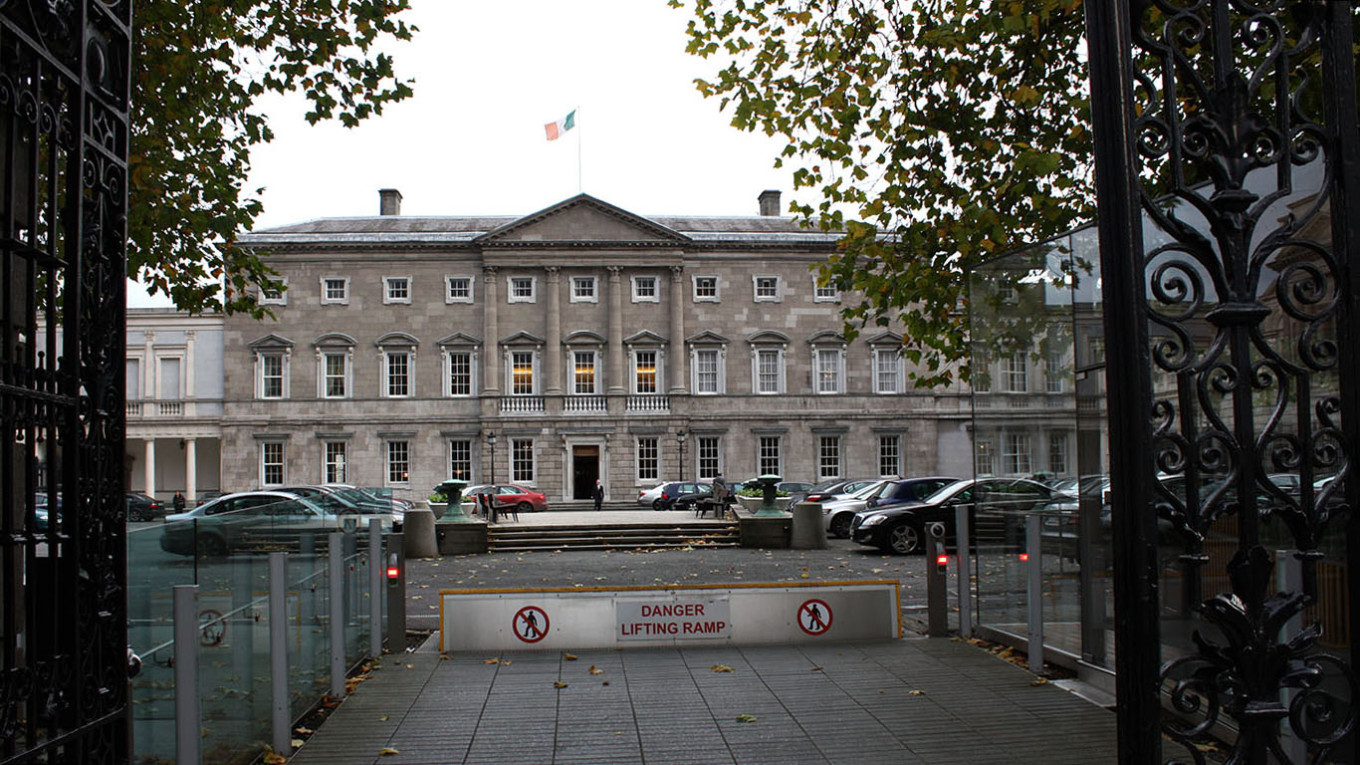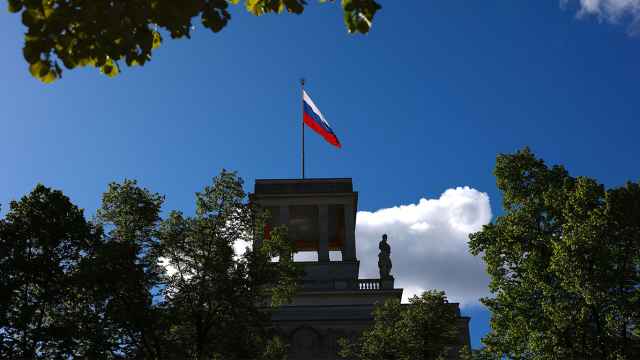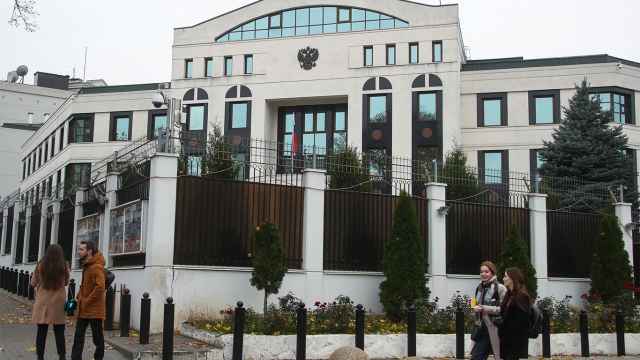Dublin's storied pubs this week were buzzing with salacious gossip about a politician compromised by a Russian honeytrap. But the real issue is Ireland's incredible vulnerability to espionage and other forms of influence.
Russian intelligence used a strikingly beautiful female agent to recruit the politician, codenamed Cobalt, as an agent aiming to – among other things – undermine relations between Britain, Ireland and the EU during Brexit negotiations.
However, while the public was shocked, Ireland’s Prime Minister Simon Harris said reports of a mole in the Irish parliament being recruited by Russian intelligence was not a surprise to him.
Starting in 2022, state security officials tried to alert the politician about Russia's recruitment efforts. But he allegedly laughed off the warning and ignored both police and military intelligence.
Although investigators have found no evidence that Cobalt was paid for his cooperation, they suspect he may have been personally compromised. It is possible that embarrassing material was discovered in his internet history while traveling abroad, particularly in areas where Russian spies operate freely.
Intelligence officials have also long suspected the politician of working for Russia. Sergey Prokopiev, a high-ranking intelligence operative at the Russian Embassy in Dublin, is reported to have led the operation that recruited him.
The parliamentarian is reported to have offered to facilitate connections between the Prokopiev and paramilitaries in Northern Ireland during Brexit negotiations. This is despite his lack of public or private political engagement with paramilitaries.
Some security insiders believe Cobalt is still connected to the Russians. But he cannot be arrested or charged due to not having committed a crime.
The scandal has caused a furor, with fears of President Vladimir Putin's “reds under the bed” and trying to figure out Cobalt’s identity is practically a national game.
Politicians in the Dail lower house and the Seanad upper house have been tripping over themselves to rule themselves out as Cobalt. Peadar Tóibín, leader of the Aontú party, also revealed that he had received an offer from a female consultant to fly out to Moscow to stay in a five-star hotel for a business forum and a chance to meet Putin.
Cathal Berry, a former army chief who now sits in the Dail’s backbenches, claimed Ireland is “a playground” for Russian spies due to its extensive assets and lackadaisical security culture.
As part of a grand Western coalition that has imposed an unprecedented number of sanctions against Russia and its elites, Moscow considers Ireland and the rest of the EU to be legitimate targets. Trying to compromise local politicians and MEPs and undermine democratic institutions is an attempt to instill chaos, sowing disharmony and twisting public opinion for the Kremlin’s benefit.
Some of Moscow’s tactics are as old as the amorous arts. The reported honeypot mission aligns with broader hybrid warfare tactics ranging from disinformation campaigns to suspected arson and antisemitic attacks.
MI5 Director General Ken McCallum warned that Russia is increasingly using low-level criminals to commit arson, sabotage, and attack dissidents with the aim of sowing chaos across Europe. Moscow is ramping up cyberattacks and reliance on criminal proxies after its spy network was largely dismantled by the expulsion of 750 Russian diplomats following the full-scale invasion of Ukraine.
Ireland has long been regarded as the soft underbelly of Europe. Its outsized Russian Embassy, which at one stage allegedly had 40 spies, can target U.S. tech firms operating in Dublin and Cork, try to intercept EU correspondence and infiltrate companies in Northern Ireland and mainland Britain.
Along with Switzerland and Luxembourg, Ireland leads the list of Europe's richest nations by per capita GDP. However, the Celtic nation spends the least of any EU member on defense, investing only 0.2% of its GDP in 2022.
What the scandal has exposed is Ireland’s vulnerability to Russian espionage, sabotage, attacks on critical infrastructure as well as provocative military displays of power.
In 2020, Ireland again had to call on the British Royal Air Force to intercept Russian Tupolev TU-95 "Bear" bombers off its coastline. We should not have to rely on our nearest neighbors, especially after the UK left the EU in 2020.
Ireland’s healthcare system was hit by a Russian ransomware cyber-attack in 2021 that so far cost 100 million euros ($109 million) and has caused thousands of people to suffer the impact of delayed care. That figure is expected to increase to well over 600 million ($655.7 million).
In the month before the full-scale invasion of Ukraine, Ireland had to depend on a band of hardy fishermen to deter Russia from holding a massive naval exercise in its exclusive economic zone.
Sleeper spies have also been active in Ireland. Last year, Sergei Cherkasov was caught by Dutch security forces trying to get an internship at the International Criminal Court in the Hague. Cherkasov, under the Brazilian alias Viktor Muller Ferriera, graduated with a first-class degree in political science from Trinity College Dublin in late 2018.
“Illegal” spies operating without diplomatic cover, a cornerstone of Soviet-era espionage, remain a key weapon in Moscow’s arsenal against the West. Putin, himself a former KGB officer and later head of the FSB, has revived and expanded this campaign of disinformation, subversion, and intimidation.
Cobalt was not the first Western politician to fall for a honeytrap and he certainly will not be the last. Femme fatales have long been a hallmark of Russian espionage, and no one has perfected the honey trap quite like the Russians. As the former KGB General Oleg Kalugin once quipped, the Soviet intelligence agency did not ask Russian women to stand up for their country but “asked them to lay down.”
With that in mind, my advice to any middle-aged Irish politician is simple. If a Slavic beauty comes bearing gifts, take off your beer goggles and make a beeline for the nearest exit.
A Message from The Moscow Times:
Dear readers,
We are facing unprecedented challenges. Russia's Prosecutor General's Office has designated The Moscow Times as an "undesirable" organization, criminalizing our work and putting our staff at risk of prosecution. This follows our earlier unjust labeling as a "foreign agent."
These actions are direct attempts to silence independent journalism in Russia. The authorities claim our work "discredits the decisions of the Russian leadership." We see things differently: we strive to provide accurate, unbiased reporting on Russia.
We, the journalists of The Moscow Times, refuse to be silenced. But to continue our work, we need your help.
Your support, no matter how small, makes a world of difference. If you can, please support us monthly starting from just $2. It's quick to set up, and every contribution makes a significant impact.
By supporting The Moscow Times, you're defending open, independent journalism in the face of repression. Thank you for standing with us.
Remind me later.








